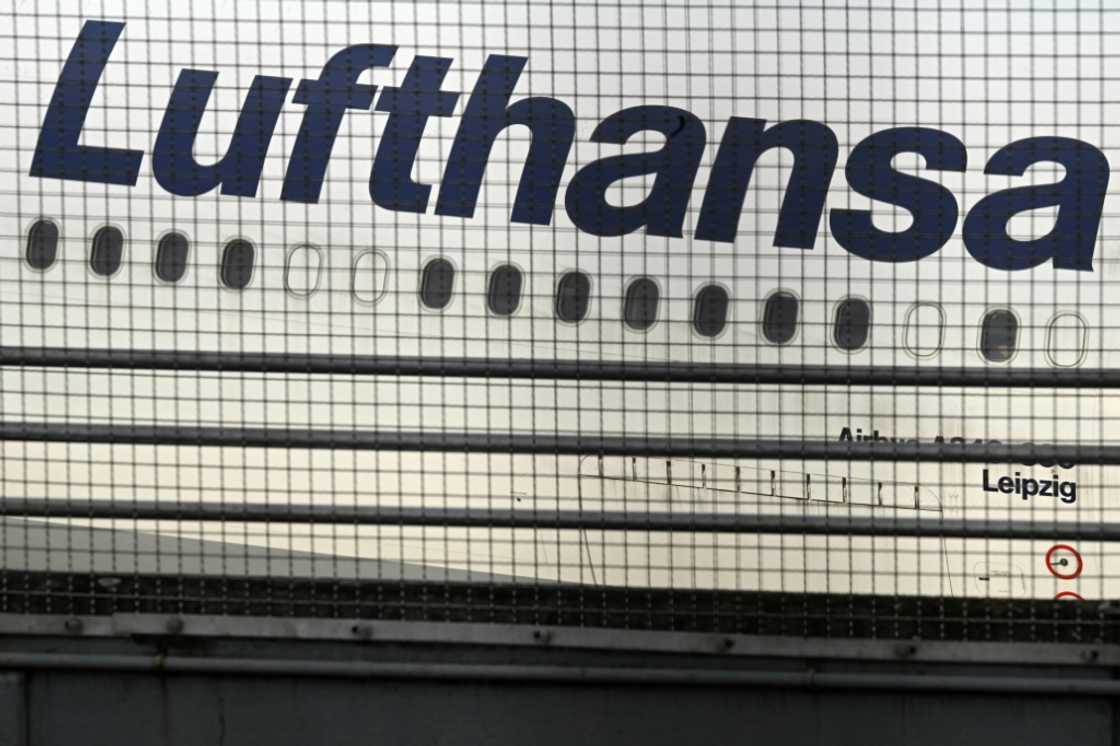Germany braces for fresh rail, air travel strikes

Source: AFP
Germany braced for more travel misery after unions on Monday called for renewed walkouts at Lufthansa and rail operator Deutsche Bahn, amid escalating rows over inflation-busting pay rises.
Lufthansa ground staff will stage a two-day strike from Thursday, the powerful Verdi union announced, accusing management at the airline group of showing "no willingness" to come up with an improved offer.
The stoppage would impact passenger services from 0300 GMT on Thursday until 0610 GMT on Saturday, Verdi said.
Some 200,000 air travellers would be affected, Lufthansa warned.
The strike call comes less than a week after ground staff at Lufthansa's technical support and aviation training units downed tools. That walkout, however, did not affect passenger travel.
A one-day strike by Lufthansa ground staff in Germany last month already affected some 100,000 passengers, with between 80 and 90 percent of the airline's commercial flights grounded.
PAY ATTENTION: All celebrity news in one place! Follow YEN's Facebook Broadcast channel and read on the go.
Verdi's chief negotiator Marvin Reschinsky said it was "regrettable" that passengers would again see their travel plans disrupted.
"By ignoring our request to negotiate, Lufthansa is telling us that it will only move when the pressure increases further," he said.
Verdi is seeking pay rises of 12.5 percent for the workers it represents, or a minimum of 500 euros ($542) more a month.
Lufthansa has offered pay increases over an extended period but not enough to meet Verdi's demands, the union has said.
The airline's human resources chief Michael Niggemann said Lufthansa had repeatedly improved its offer and accused Verdi of "deliberately seeking escalation instead of a solution".
The next round of negotiations will take place on March 13 and 14.
Germany, Europe's largest economy, has been hit by a spate of strikes across varying sectors in recent months, including transport, the civil service and supermarkets.
Pinched by inflation over the last years and in the wake of the coronavirus pandemic, workers are demanding higher wages to cope with shrinking purchasing power.
The GDL train drivers union added to the tensions on Monday by announcing a strike wave after negotiations with Deutsche Bahn over higher pay and a shorter work week broke down.
Talks with management "have failed", GDL boss Claus Weselsky told a press conference.
The first strike would last for 35 hours and begin at 1700 GMT on Wednesday for cargo services and at 0100 GMT on Thursday for passenger rail, he added.
'Stubborn and selfish'
The GDL union is pushing for a salary hike to help train drivers cope with higher living costs, despite also demanding a reduced working week of 35 hours, down from 38 hours.
Deutsche Bahn says it has made concessions amounting to up to 13 percent more pay, as well as the option of cutting the work week by one hour from 2026.
"The first strike will last for 35 hours so everyone in the country can feel what we are talking about," Weselsky said, adding that further strikes would follow.
"We are starting a so-called wave of strikes," he said, which will be announced "when we think the time is right" and no longer 48 hours in advance as has been the case in the past.
As a result, "rail is no longer a reliable means of transport", he added.
Deutsche Bahn's human resources director Martin Seiler sharply condemned the union's announcement, accusing GDL of "stubbornly and selfishly" insisting on its maximum demands even though these were "unachievable".
Warning the situation was becoming "more unpredictable for everyone", he urged the union to return "to the negotiating table and look for solutions".
A multi-day walkout by train drivers in January caused travel disruption for thousands of passengers and heaped pressure on supply chains already strained by tensions in the Middle East.
Deutsche Bahn estimates that each strike day costs the German economy "a low two-digit million figure".
PAY ATTENTION: Stay informed and follow us on Google News!
Source: AFP





